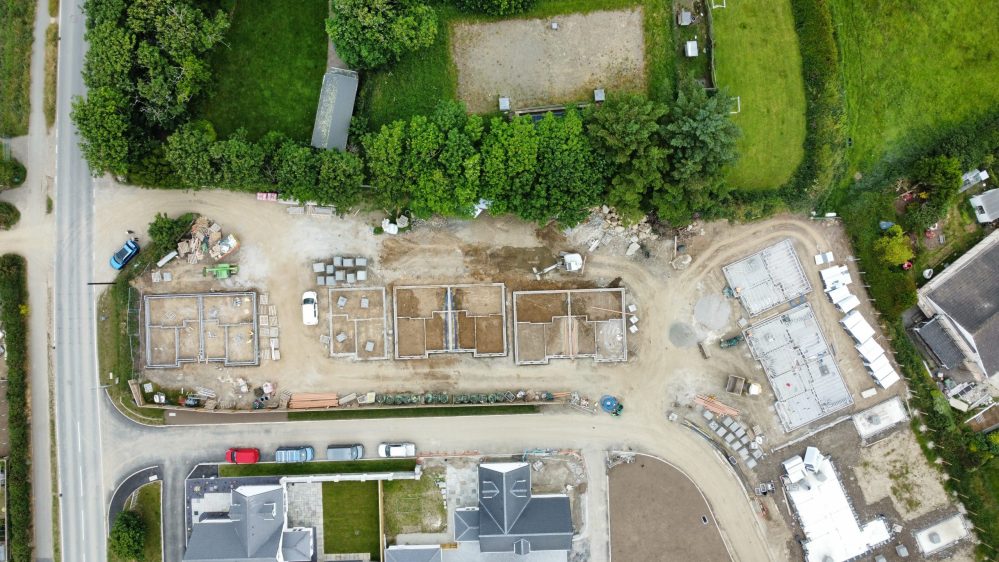News
Jailed: Sick father and son paedophiles brutally raped young child in west Wales

TWO sick child rapists, a father and son, carried out one of their “brutal rape attacks” on a child in west Wales, have been sentenced to a total of 33 years imprisonment.
Arthur William Bowditch, 73, and his son Arthur Stephen Bowditch, 54, are both from Wiltshire, but carried out their attacks on children as young as three in the 1980s and 1990s.
One of the infants was left so badly injured by William Bowditch that she required surgery to repair damaged tissue following the assault.
The court heard that he also sexually assaulted a girl with a rough wooden object.
Stephen Bowditch raped another young child at an undisclosed location near the west coast of Wales. The court heard that the little child cried out for help during the assault however her step-father failed to hear her because of the sound of grass cutting machinery.
Statements from the victims, who cannot be named for legal reasons, were read out in court.
‘I have been a victim but now I’m a survivor,’ said one, ‘and facing my abuser is my way of taking back control of my life’.
Another said that the ‘degrading’ things that had been carried out to her as a child had taken away her childhood. However she has now forgiven her abuser.
‘This helps me forget, let go of my hate and not let the defendant take any more of my life’.
William Bowditch and Stephen Bowditch committed multiple counts of rape and indecent assault on the girls during the 1980s and 1990s however it isn’t believed that they committed them together. They were previously convicted at trial of the offences and appeared before Swansea Crown Court this week for sentence.
An earlier sentencing hearing had to be adjourned after Bowditch Snr failed to turn up even though his wife had dropped him off at Swindon railway station that morning.
Detectives familiar with the case were sent to Swansea station to check CCTV, and the court heard no trace of the defendant could be found nor there was no evidence he had been on the train he was supposed to have caught.
The delayed sentencing hearing was told Bowditch had in fact got on the wrong train at Swindon and instead of travelling to Swansea had arrived in Bristol where he had “engaged with people on the street” before falling into the harbour.
He then returned home where he was arrested early the following morning by Wilshire Police and taken into custody.
The son has a previous conviction from 1989 for indecent assault on a girl under 14, the court heard
Judge Huw Rees said the defendants’ victims had been “denied a childhood” by their actions, and said the statements from the women had been “harrowing” to listen to. He said it was clear that the abuse inflicted by the defendants had profoundly affected the women while William Bowditch had acted out of “degenerate and unhealthy sexual lust”.
Arthur William Bowditch, of Selby Crescent, Swindon, Wiltshire, was given a 21-year extended sentence comprising 20 years in custody followed by a one-year extended licence.
Arthur Stephen Bowditch, of Morse Close, Chippenham, Wiltshire, was sentenced to 12 years in prison. Both will be registered sex offenders for the rest of their lives.
Community
Public reminded to stay away from Ward’s Yard and Criterion Quay

THE PORT of Milford Haven is reminding members of the public to stay away from Ward’s Yard in Milford Haven and Criterion Quay (sometimes known as the offshore jetty) in Pembroke Dock due to concerns over public safety.
Despite significant security measures, people continue to access the sites illegally, ignoring and sometimes damaging the onsite signage and fences.
Niall Yeomans, Head of Health, Safety and Security at the Port of Milford Haven said: “Safety is our key priority. Members of the public are continuously putting themselves and members of our team at risk of serious harm by trespassing in these areas.”
“Both Ward’s Yard and Criterion Quay are unsafe for public access. They are isolated areas next to deep water and are susceptible to slips, trips and falls.”
Both sites are owned by the Port of Milford Haven and are private property. Anyone found onsite without consent is trespassing, and any criminal damage could result in prosecution.
Anyone who sees any suspicious activity at Ward’s Yard or Criterion Quay is asked to contact Dyfed Powys Police on 101 urgently.
Crime
‘Sophisticated’ organised crime gang trafficked cocaine and cannabis to Aberystwyth

FIVE people have been found guilty or admitted to conspiring to supply cocaine and cannabis as Dyfed-Powys Police continues its efforts to dismantle organised crime gangs.
Officers seized cocaine with a street value of more than £400,000 from gang members, who continually changed tactics to avoid arrest.
Six defendants have appeared in court in the latest phase of Dyfed-Powys Police’s Operation Burleigh, which sought to disrupt the trafficking and onward supply of class A and B drugs into Aberystwyth, with all but one admitting their charges or being found guilty by a jury.
This brings the total number of people awaiting sentence under the operation to 15.
The court heard that officers from Dyfed-Powys Police’s Serious and Organised Crime Team and Ceredigion Priority Policing Team led the investigation into the OCG, which was described as ‘sophisticated, well-organised and evolving’.
Detective Sergeant Steven Jones said: “This conspiracy operated on a County Lines model, where controlled drugs are trafficked into a smaller rural town from a larger city, and the operation is controlled by one or more ‘drugs lines’.
“In this case there were a total of four lines controlling the supply of cocaine and cannabis within Aberystwyth.
“The conspirators frequently evolved their actions to frustrate the authorities and evade capture.”
The OCG embedded members were mainly asylum seekers brought to Aberystwyth by Toana Ahmad and another man who remains outstanding, with the sole purpose of dealing drugs. The drug lines were initially based in Swansea, and later in areas of Birmingham.
Three properties – on Terrace Road, Alexander Road and Parc Graig Glas – were identified early in the investigation as being used to house the OCG members embedded in Aberystwyth. Substantial amounts of cash, controlled drugs and weapons were recovered from these properties, and from the people found inside.
When arrests were made, the gang changed its tactics. Drugs began to be supplied from vehicles, and OCG members stayed in guest houses to avoid detection.
DS Jones added: “Trusted couriers were employed to transport drugs to Aberystwyth and cash back to Birmingham or Swansea. A number of vehicles, including taxis, were used as the gang attempted to avoid detection along the route, while trains were also taken when courier cars were stopped by officers.”
In June 2023, two vehicles travelling from the West Midlands towards Aberystwyth were stopped by police on consecutive days. A black sock was uncovered in the engine of the first car, which was found to contain 82g of high purity cocaine divided into 169 grip seal plastic bags.
Davinder Singh, who previously pleaded guilty to conspiracy to supply class A and class B drugs, was the driver of the second vehicle, which was a taxi. A blue plastic bag was seen falling out of his shorts, which contained over 81g of high purity cocaine divided into 167 grip seal bags.
DS Jones said: “On the basis that the amounts of cocaine transported over the 37 couriers over the course of the conspiracy period were similar, over 3kg of cocaine would have been conveyed to Aberystwyth from Birmingham.
“This equates to class A drugs with a potential street value of over £308,950. In addition to this, class A drugs were seized from individuals and addresses with a potential street value of £103,445, along with cash totalling £11,687.
“A number of teams and departments across Dyfed-Powys Police, from analysts, CCTV operators and priority policing teams, to CAB, the Technical Support Unit, Economic Crime Team and Force Intelligence Bureau all assisted in dismantling the OCG from top to bottom.
“Their dedication and relentless efforts have assisted in making Aberystwyth a safer place to live without the threat and harm of drugs being made easily available on the street.”
After a seven-week trial at Swansea Crown Court earlier this year, the following three defendants were found guilty for their parts in the conspiracy:
- Toana Ahmad, aged 33, of Lee Gardens in Smethwich, West Midlands
- Barzan Sarhan, aged 31, of no fixed address
- Ahmed Piro, aged 26, of no fixed address
The jury failed to reach a verdict on two defendants during the earlier trial. They have been subject to a retrial starting on July 1, with the following outcomes:
- Hawre Ahmed, aged 35, of Pinderfields Road, Wakefield, West Yorkshire, was found guilty by the jury of conspiracy to supply Class A and B controlled drugs.
- Diar Yousef Zeabari, aged 35, of Flat 5, 41 Bryn Road, Swansea, was found not guilty of conspiracy to supply Class A and B controlled drugs.
Karwan Karim, aged 39 of 125 Griffith John Street, Swansea, also stood trial, and pleaded guilty to conspiracy to supply Class A and B controlled drugs on day three.
In addition to the OCG members found guilty during the most recent trials, the following have previously pleaded guilty to charges of conspiracy to supply class A and class B drugs under Operation Burleigh:
- Davinder Singh, aged 36, of Huntingdon Road, West Bromwich
- Daban Khalil, aged 23, of Streetly Road, Birmingham
- Kastro Omar, aged 30, of Junction Road, Northampton
- Karwan Jabari, aged 26, of Weedon Close, Northampton
- Walid Younis Abdal, aged 34, of St Anne’s Road, Doncaster
- Saman Aziz, aged 41, of Kirk Road, Merseyside
- Adel Mustafa, aged 39, of Hubert Road, Newport
- Charlotte Roberts, aged 21, of Sutton Hill, Telford
The following have previously pleaded guilty to conspiracy to supply class A drugs:
- Akasha Smith, aged 24, of Third Avenue, Aberystwyth
- Luqman Jarjis, aged 21, of Wake Green Road, Birmingham
News
Community asked for views on allocation of new St Davids homes

THE FIRST phase of Pembrokeshire County Council’s Glasfryn housing development in St Davids is progressing well with the second phase also underway.
The development being built by GRD Homes Ltd, began in November 2023, with a first phase completion date of Winter 2024 looking hopeful, ahead of the scheduled plans.
The first phase consists of seven properties, including a mixture of one and two bedroom bungalows
As completion draws closer the properties will be advertised via Pembrokeshire Choice Homes.
Ahead of this, the Council’s housing team will be holding community engagement on the 13th August 2024 at the Ty’r Pererin Centres, Quickwell Hill, St Davids, SA62 6PD, 5pm-7pm.
This will be a chance for officers to liaise with the local community about the allocation process for these properties.
Glasfryn’s second phase is well underway, with the initial groundwork already completed. This phase includes a further 11 two bedroom bungalows, with a completion date in late 2025.
These bungalows will meet the latest Welsh Government’s Development Quality Requirement, and will be energy efficient, built to EPC A specification and include solar panels to help tenants with running costs.
The Glasfryn development is funded in partnership with Welsh Government.
Cabinet Member for Housing Cllr Michelle Bateman said: “We are really keen to work with the community on a local lettings policy for these new properties, as we have done for our developments in other parts of the County.”
If you have any queries please email the Customer Liaison Team on [email protected], phone them on 01437 764551, or visit Housing’s Facebook page.
-

 Education5 days ago
Education5 days agoMilford Tesco worker achieves Oxford dream and lands top legal job
-

 Crime4 days ago
Crime4 days agoHaverfordwest man admits having nearly 1000 child and animal images
-

 Crime4 days ago
Crime4 days agoYouth set to appear in court over serious sexual offences
-

 Crime4 days ago
Crime4 days agoPolice investigating after man injured during altercation in cemetery
-

 Education4 days ago
Education4 days agoPupils delight in ice cream treat from Pembrokeshire’s number one van
-

 Crime4 days ago
Crime4 days agoTown centre ‘stinking of skunk’ as police strip cannabis farm
-

 Crime3 days ago
Crime3 days agoFag-butt police court summonses spark debate in Pembrokeshire
-

 News6 days ago
News6 days agoProposal to give firefighters a council tax discount to go to Cabinet











































